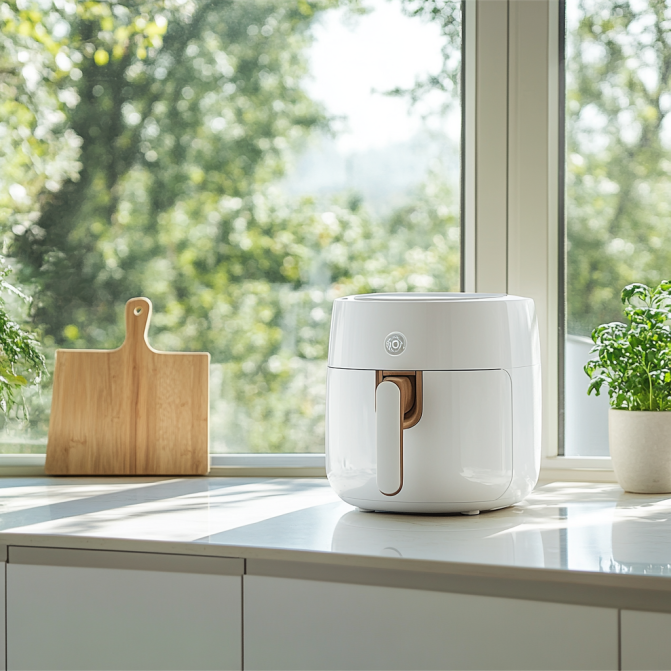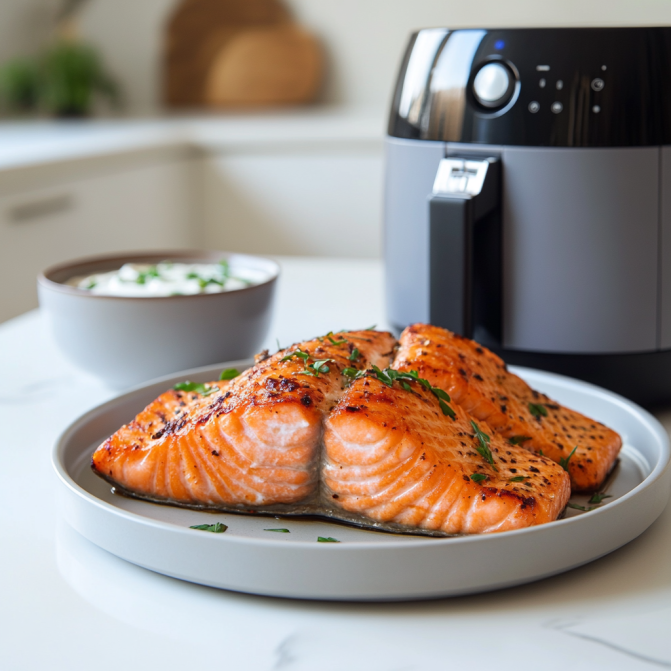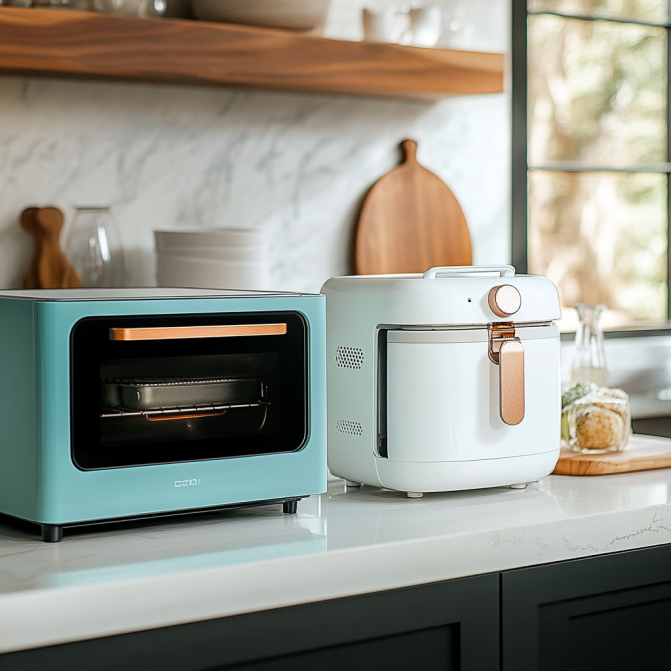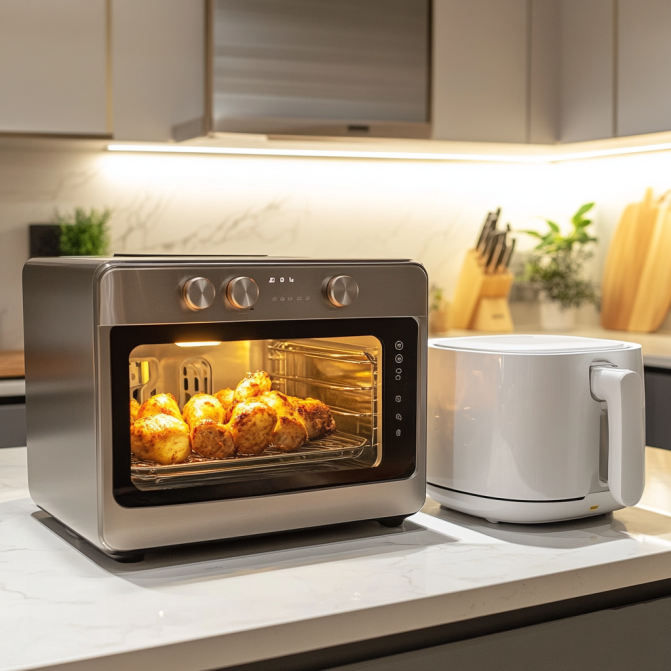Environmental Impact Air Fryer Oven: A Greener Cooking Choice
Air fryer ovens have surged in popularity, promising healthier meals with less oil. Beyond their culinary benefits, these kitchen gadgets also raise important questions about their environmental impact. This article explores what air fryer ovens are, their energy efficiency, and how they compare to traditional cooking methods. It also shares practical tips on minimising their ecological footprint, from choosing the right model to proper use and disposal. Dive in to discover how your cooking choices can make a difference for the planet.
Overview of Air Fryer Ovens
Air fryer ovens signify a significant advancement in culinary technology, merging the efficiency of convection cooking with energy conservation and a reduced carbon footprint. These versatile kitchen appliances enable users to achieve crispy results akin to traditional frying while substantially decreasing oil consumption, thereby encouraging sustainable cooking practices. By employing air frying technology, home cooks can explore a range of cooking methods that support a healthier lifestyle, positioning air fryer ovens as essential tools for environmentally conscious consumers aiming to minimise their ecological impact in the kitchen.
What is an Air Fryer Oven?
An air fryer oven is a contemporary kitchen appliance that employs advanced cooking technology to circulate hot air around food, achieving a crispy texture similar to that of deep-fried dishes while utilising significantly less oil, thereby enhancing its health benefits. This method relies on convection heating, creating a flow of hot air that evenly cooks and browns the ingredients, transforming them into flavoursome, crunchy meals without the excess fat. The innovative design not only expedites the cooking process but also conserves energy, aligning seamlessly with eco-friendly culinary practices. Users can relish the satisfaction of enjoying flavoursome dishes without compromising their health, effectively reducing caloric intake and mitigating the risks associated with high-fat diets. Air fryers promote a more sustainable kitchen by minimising oil usage, making them ideal energy-saving devices for modern households aiming for both convenience and sustainability.
Environmental Impact of Air Fryer Ovens
The environmental impact of air fryer ovens is a significant consideration for eco-conscious consumers. Their focus on energy efficiency contributes to a substantial reduction in greenhouse gas emissions and a lower carbon footprint compared to traditional cooking methods. This transition towards sustainable cooking practices not only benefits the environment but also improves indoor air quality. Consequently, these appliances represent a sensible choice for modern households seeking environmentally friendly solutions.
Energy Efficiency
Energy efficiency is a critical attribute of air fryer ovens, which are designed to consume significantly less energy compared to conventional ovens. This reduction in energy consumption not only contributes to lower electricity bills but also promotes environmental sustainability. These appliances typically feature energy ratings ranging from A+ to A+++, reflecting their superior performance in minimising power usage. Additionally, many air fryer ovens are equipped with eco-labels that certify their dedication to environmentally friendly technology. For consumers, using an air fryer oven offers the dual benefit of reduced utility costs and participation in a global initiative aimed at promoting sustainable energy practices. By choosing these energy-efficient devices, individuals can prepare delicious meals while minimising resource consumption, ultimately fostering a healthier planet and a more manageable household budget.
Reduced Carbon Footprint
The reduced carbon footprint associated with air fryer ovens renders them an appealing option for environmentally conscious consumers, as they produce fewer emissions throughout their product lifecycle compared to traditional kitchen appliances. Air fryer ovens employ hot air circulation to cook food rapidly and efficiently, utilising up to 75% less energy than conventional ovens. For example, a standard oven typically requires preheating and consumes significantly more electricity during each cooking session, whereas an air fryer reaches the desired temperature within minutes, resulting in a substantial reduction in energy consumption over time. Research indicates that many air fryer models generate up to 80% fewer greenhouse gas emissions. This transition towards energy-efficient cooking practices not only benefits individual households but also acts as a catalyst for greater environmental awareness. By making informed choices regarding kitchen appliances, consumers can play an essential role in fostering sustainable habits that ultimately contribute to a healthier planet.
Owala FreeSip Insulated Stainless Steel Water Bottle with Straw for Sports and Travel, BPA-Free, 24-oz, Blue/Teal (Denim)
$27.99 (as of 18:47 GMT +00:00 - More info)Less Food Waste
Air fryer ovens play a significant role in reducing food waste by promoting efficient cooking methods that maximise food preservation and facilitate improved meal preparation, in alignment with the principles of zero waste and sustainable gastronomy. By leveraging the versatile functionality of these kitchen appliances, individuals can effectively repurpose leftover ingredients into new, appealing meals. For example, yesterday’s roasted vegetables can be transformed into a flavoursome frittata or serve as the foundation for a hearty grain bowl. Air fryers also enable quicker cooking times, ensuring that fresh produce retains its nutrients while significantly mitigating the risk of spoilage. Additionally, recipes can be adapted to require smaller batches, encouraging mindful shopping and decreasing the likelihood of excess food going uneaten. These strategies not only enhance the culinary experience but also contribute to a more sustainable future.
Comparison to Traditional Cooking Methods
A comparison between air fryer ovens and traditional cooking methods reveals that air fryers significantly enhance cooking efficiency. They offer considerable advantages in energy consumption, reduce cooking time, and provide overall health benefits, positioning them as a modern alternative for environmentally conscious consumers.
Energy Consumption and Waste Generation
Air fryer ovens considerably reduce energy consumption and waste generation in comparison to traditional ovens, positioning them as a prime choice in the realm of eco-friendly cooking and environmental sustainability. By employing rapid air circulation technology, these advanced appliances cook food more efficiently, requiring less preheating time and energy to achieve optimal cooking temperatures. In contrast to conventional ovens, which typically consume more energy over extended cooking durations, air fryers can produce crispy results in a significantly shorter time frame. This enhanced efficiency not only leads to reduced electricity costs but also helps in minimising carbon footprints. The limited use of oil in meal preparation results in less waste and provides a healthier alternative for consumers who are committed to eco-conscious practices. Ultimately, this cooking method aligns seamlessly with the increasing trend towards sustainable living, fostering habits that contribute to a healthier planet.
Tips for Reducing Environmental Impact
Reducing the environmental impact of air fryer ovens begins with informed choices and practices. This approach enables eco-conscious consumers to select suitable appliances, ensure proper use and maintenance, and adhere to responsible disposal and recycling methods for outdated appliances.
Choosing the Right Air Fryer Oven
Selecting the appropriate air fryer oven necessitates the careful consideration of several factors, including energy-saving capabilities, features that enhance cooking efficiency, and the presence of green certifications to ensure a sustainable purchase. Furthermore, it is imperative to assess the unit’s size, as this can considerably influence both cooking capacity and available kitchen space. Durability also plays a significant role; a well-constructed model typically offers a longer lifespan, representing a prudent investment for the environmentally conscious consumer. Making informed purchasing decisions is essential for minimising waste and encouraging manufacturers to prioritise eco-friendly designs. By taking these factors into account, consumers can confidently choose an air fryer that not only fulfils their culinary requirements but also aligns with their commitments to sustainability and energy efficiency.
Proper Use and Maintenance
The proper use and maintenance of air fryer ovens are essential for extending their lifespan and ensuring optimal performance. Adhering to user manuals and implementing routine care practices is of utmost importance. By consistently following these best practices, users can enhance the efficiency of their air fryer, enabling it to operate at peak performance while minimising the risk of malfunctions. Regular cleaning is imperative; removing residual food particles and grease not only promotes hygiene but also prevents smoke and unpleasant odours during the cooking process. Calibrating the appliance according to the manufacturer’s specifications can significantly improve cooking accuracy. Adopting these maintenance habits not only results in cost savings over time but also supports sustainability by reducing waste. This reinforces the notion that responsible ownership fosters a longer-lasting and reliable kitchen appliance.
Exquisite 6-Pack Premium Plastic Tablecloth 54in. x 108in. Rectangle Plastic Table Cover - Red
$9.89 (as of 18:47 GMT +00:00 - More info)Disposal and Recycling
The responsible disposal and recycling of air fryer ovens are crucial for minimising waste and promoting sustainability. Eco-conscious consumers are encouraged to consider the entire product lifecycle when replacing their appliances. By understanding the proper disposal methods for these kitchen gadgets, individuals can significantly reduce their environmental impact. It is important to investigate local recycling programmes that specifically accept electronic appliances, as many components can be repurposed instead of ending up in landfill. Additionally, exploring options for biodegradable materials, when available, not only contributes to waste reduction but also aligns with a broader commitment to environmental stewardship. Embracing practices such as donating functioning appliances or utilising repair services can further enhance waste reduction efforts, highlighting the importance of informed consumer choices in achieving a more sustainable future.










